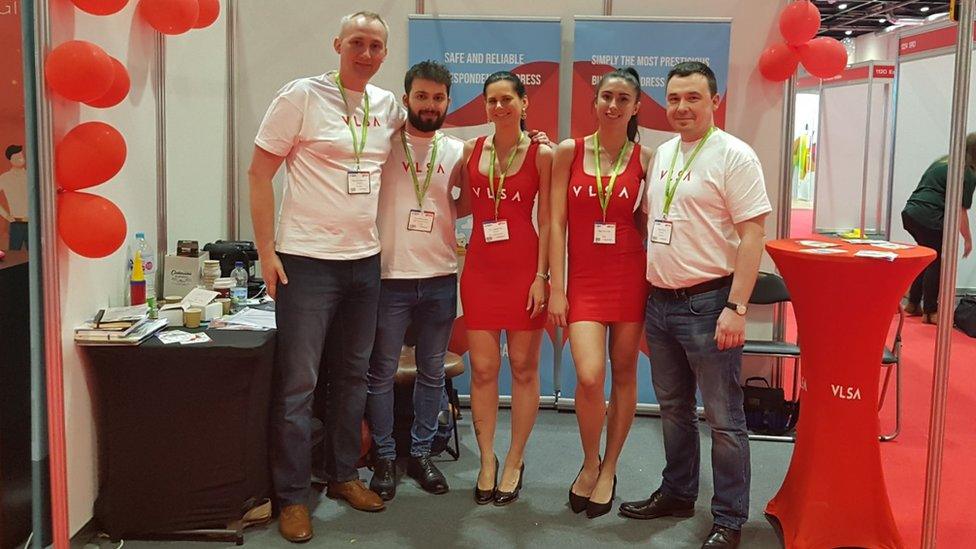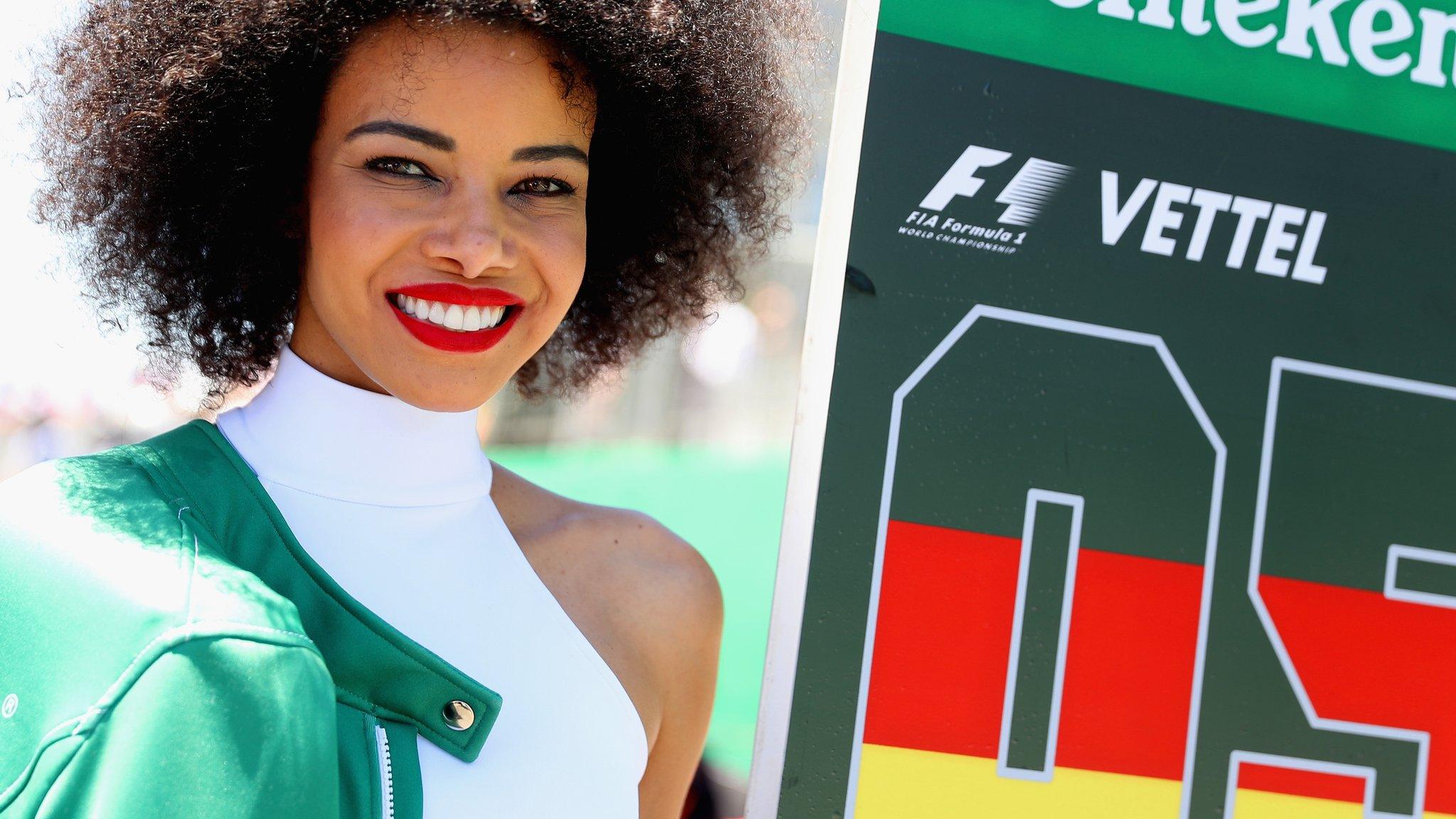‘Booth babes’ cause controversy at business show
- Published

The VLSA stand at Business Show 2019
Whether it's effective, inappropriate or both, some firms still use women in skimpy dresses to market their wares.
Visitors to this week's Business Show 2019 have expressed surprise and dismay that an exhibitor used "booth babes" to attract attention to their stand.
The event was held at ExCeL London and was billed as the "the biggest business event in Europe".
But some attendees shared photos online of four women wearing branded, figure-hugging dresses and handing out fliers.
'Sincerely apologise'
Known as booth babes, women wearing skimpy dresses used to be standard fare at events like this, intended to attract male attendees to stalls and marketing materials.
But in recent years there has been more criticism of this as a promotional tactic.
In a statement to the BBC, organisers of the event said: "The Prysm Media Group, would like to sincerely apologise to those who feel upset about certain garments worn by associates of exhibitors during the 2019 Business Show.
"We would like to thank those who pointed this issue out as this is a great opportunity for us to better our business practices."
The company in question, VLSA Ltd, paid the women £100 plus £20 expenses for each of the two days, requiring them to wear branded dresses, distribute fliers and pose for photographs at the exhibition.
A spokesperson for the firm said there had been no negative reaction at the event.

Some sports still use women in skimpy dresses to promote their events
However, visitors took to Twitter to question the use of booth babes at a serious and inclusive business exhibition, sharing photographs that inspired further criticism from people who were not there.
One attendee tweeted: "Seriously @TheBusinessShow I'd have a word with your exhibitors. Promo girls and a photographer from VLSA is a bit outdated."
"A rare colourised picture actually taken in 1895," joked Ben Lovell on Twitter.
'Polite attitudes'
Many exhibitions have banned the use of scantily-clad women being hired to pose by stands as a marketing ploy.
Last year, the cyber-security conference Infosecurity Europe apologised after one of its exhibitors used women in red dresses as a promotional tool, saying "booth babes are indeed a step backwards for the industry" and that exhibitors were expressly banned from using this tactic.
Pavel Sisov, a director at VLSA, said there had been no negative feedback at the event and that he was surprised to hear people had questioned it online.
"We have been extremely busy with all the interest the models brought in with their smiles and polite attitude," he told the BBC, adding that a company on a nearby stall was so impressed by their success that it said it planned to hire models for its next show.
He also said the term booth babes was disrespectful to the women he hired for the event. VLSA had originally advertised for "show girls" to hand out fliers and pose for photographs.
'Needs outlawing'
While some people may dismiss the presence of women wearing tiny branded dresses as perhaps old fashioned but not harmful, others disagree.
Julie Thompson Dredge, owner of lifestyle PR firm Frame, said: "This needs to be outlawed - it's not flyering in Ibiza in 1999."
One female tech commentator, who spoke anonymously for fear of a backlash, says this kind of tactic has a real impact on other women attending conferences.
"It is harder to get respect as a legitimate delegate working at conferences when people are hiring in 'brand representatives' who don't know anything about what you're selling or showcasing," she says.
"It means anyone looking to have a meaningful conversation just beelines for a male team member."
'Outdated'
There's also debate over whether it actually works for the businesses involved as well.
Lee Ali, managing director of global exhibition company Expo Stars Interactive, says this kind of promotion can backfire for companies.
"If businesses want to get the most out of exhibitions, they have to move away from outdated tactics like asking promotional staff to wear revealing outfits.
"It's not only sexist and inappropriate, it's embarrassing and makes people really uncomfortable.
"Thankfully, most businesses that invest in exhibitions have moved away from this kind of nonsense but you do still see the odd case."
- Attribution
- Published24 May 2018

- Attribution
- Published31 January 2018

- Published24 January 2018
